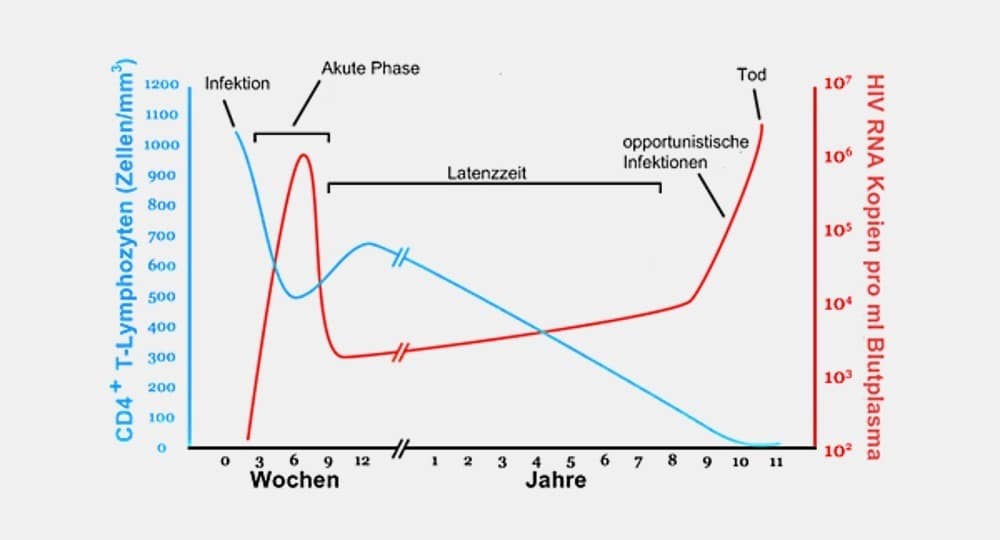HIV symptoms
If you suddenly develop flu symptoms a few days or a few weeks after a high-risk HIV contact (e.g. unprotected anal sex), or if you develop a rash on your back, stomach or chest or your lymph nodes swell up, these could be signs of a recent HIV infection.
Symptoms that may indicate a recent HIV infection:
- Fever over several days
- Listlessness
- Headaches, joint and muscle pain
- Skin rash on the back, chest or abdomen
- Diarrhoea
- heavy night sweats
- painful tonsils, swollen lymph nodes
- Sore spots in the mouth
Important: Such symptoms do not always occur or are not always noticed, and they do not usually occur all together.
Shortly after an infection with HIV, the virus temporarily multiplies particularly strongly in the body. The amount of virus is then very high in the mucous membranes and body fluids involved in sex between men (mucous membranes on the penis, in the rectum and in the front hole, blood, semen and the fluid in the front hole). This also increases the risk of HIV transmission particularly high during unprotected sex.
HIV test
The only way to find out if you are infected is with an HIV test. If you know about your HIV infection, you can start treatment in good time and lead a good and long life.
You can only be sure by taking an HIV test.

Progression of an untreated HIV infection
Antibody formation & test
Soon after infection, the immune system recognises the HIV viruses as intruders and releases the body's own defence cells and antibodies against them. The antibodies can be detected by an HIV test. This makes it possible to determine whether someone is HIV-infected, i.e. HIV-positive.
An HIV test is usually an antibody screening test. This means that it looks for antibodies against HIV in the blood, which can be detected with a laboratory test no later than six weeks after infection and with a rapid test no later than twelve weeks after infection. However, if a recent infection is suspected, a test procedure that directly detects the virus or virus components can also be used earlier.
The laboratory test can prove with certainty that you are not infected, i.e. HIV-negative, after six weeks and the rapid test after three months.
HIV progression
As symptoms do not always occur, are not always noticed or are mistaken for signs of other illnesses, many people do not even realise that they are carrying HIV. After an infection, you can be fine for months or even years, even though the viruses increasingly damage the body and the immune system without being noticed.
If the immune system is damaged to such an extent that serious illnesses occur, this is known as AIDS. But it doesn't have to come to that. Thanks to treatment with highly effective HIV drugs, AIDS is now preventable. With HIV you can live well today. It is important to treat the infection in good time with a HIV test states.
